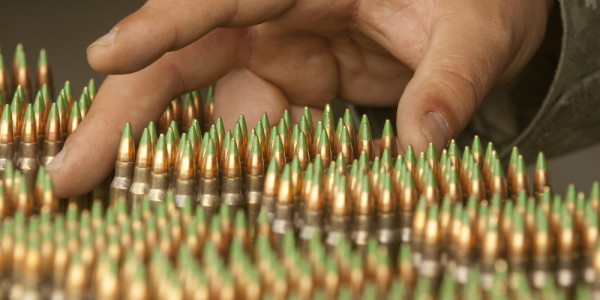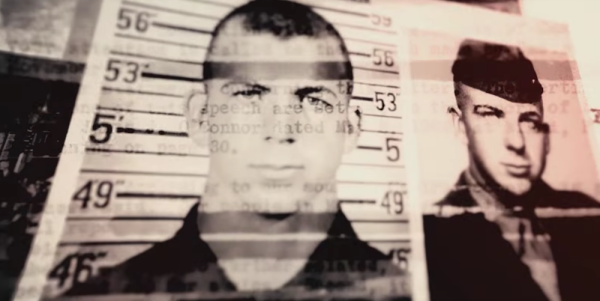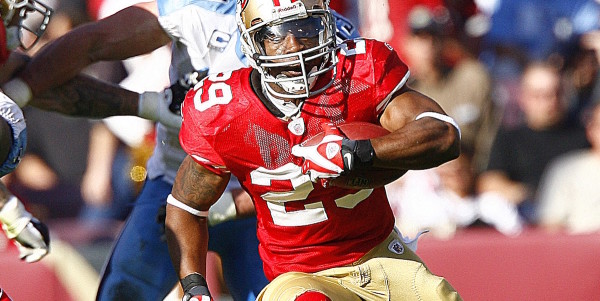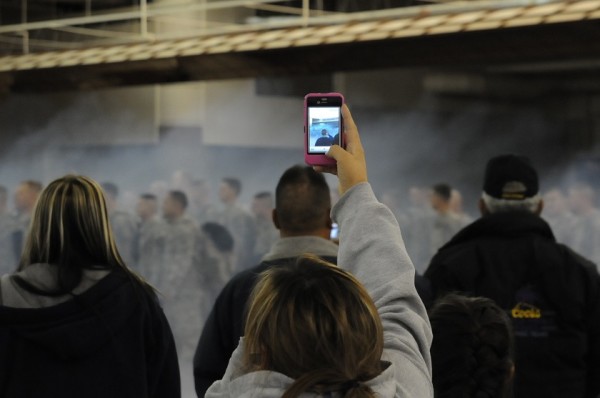There’s an old saying: You can take the interrogator out of the military, but you will never take the interrogator out of the … interrogator.
Okay, I made that up. But for those who spent a lot of time being lied to about the activities of men with beards and AK-47s wearing ski masks in 130-degree weather, it’s very apt. No matter how long it’s been since we left the service, we in human intelligence have a lot of trouble switching off “interrogator mode,” particularly when dealing with strangers asking questions or when asking questions of strangers. In other words, we see navigating the bar scene as just a way to keep our skills fresh.
Since falling into a steady relationship that comes with a Marine Corps sword on the wall and letters opened by old bayonets, I don’t play the game myself. But I still hit the bars and people watch, making predictions of the outcomes based on things like body language. It’s just habit.
But it occurs to me that some of my training might be of use to you doe-eyed guys and gals still looking for “Mr(s) Right” or “Mr(s) Right Now.” So here are a few tips from the school of human intelligence for use at your local watering hole.
You get more flies with honey than vinegar.
Any intelligence collector worth their taxpayer-invested money knows a first approach that increases fear or decreases pride is unproductive. You are trying to build rapport and get subject to open up. Starting the conversation on a negative tone — to include self-deprecation, but also negative comments about the local environment — sets a subconscious mood of displeasure. Note to the bros: this includes tough guy talk and any form of “negging,” which is quite possibly the dumbest pick-up technique I’ve ever seen. If it makes a detainee shut down, it will likely make that woman who spent an hour on her hair shut down too.
Offer small incentives.
In Iraq and Afghanistan, we would offer a phone call to a family member or some Fanta, and sometimes that small gesture could get someone to relax enough to hand over a piece of information. At a bar, if someone of interest is having trouble getting the bartender’s attention and you are a local, use your powers of being a regular. Lift up a neighbor’s phone from a spill, offer to hang a coat from the hooks under the bar, generally remember that generosity is seriously attractive. Actions speak louder than words, particularly words yelled over speakers blasting that Lumineers song for the 800th time.
Quickly find the common interest.
When testing interrogation techniques at the schoolhouse, we had “the bell” — a buzzer that would ring after a set amount of time. Before the buzzer rang, we had to find something out about the other person that would trigger their trust and set the information free. If we didn’t get that nugget before the bell, we didn’t pass rapport building and failed the course. In a social setting, if you successfully convinced the bartender to get your target’s beer, the bell is now the time before drink delivery and you need to hustle. In both situations, the fastest way to gain trust and find that nugget is to ask a question while revealing a little bit about you. A commercial for a ski resort came onto the bar television? Comment how you long to hit the slopes and see if they ski. Compare their beer choice to yours and recommend an alternative for the next round.
Observe where the shoulders are turned, not necessarily the head or eyes.
There are a million courses on body language, both at the schoolhouse and on YouTube, and the first thing you learn is none of those reading methods are absolute. That is except one: A person who does not trust you will close his or her body position, even if their head and eyes and tight-lipped smile are still pointed your way. Watching the position of the shoulders can gauge interest level more accurately than conversation. Bonus points: Someone lying or exaggerating will frequently close their body as well in an attempt to disinvite further questions that might implicate them. So if he can’t square his shoulders when talking about saving all those babies in the jungles of Africa, chances are something is amiss.
You want real truth? Look no further than pocket litter.
In bar reality the need to impress strangers with boasting tends to supersede any truths gained from multiple shots of Fireball. During raids, we had suspects turn out their pockets. A photo of a child could give us a clue as to what the suspect really cared about (if detained, we could offer a call home to check on the kid); a scrap of wire might tell us he is not the simple farmer he claims to be. You aren’t going to ask someone to turn out their pockets at the bar, but you can observe similarly small things that might allow inferences about the truth. A successful financial broker probably would not go out with frayed pant cuffs. A painter probably wouldn’t wear an expensive watch. Look for the physical clues both as conversation starters and as indicators of truth.
None of this is rocket science; in fact, it’s mostly psychology and common sense. Be nice, build trust, be observant. Really, your parents probably taught you a lot of this. But the point remains that if being a little nicer and paying attention to details can find the bombs before they went off, chances are they can also find you a date you actually want to be on.
























